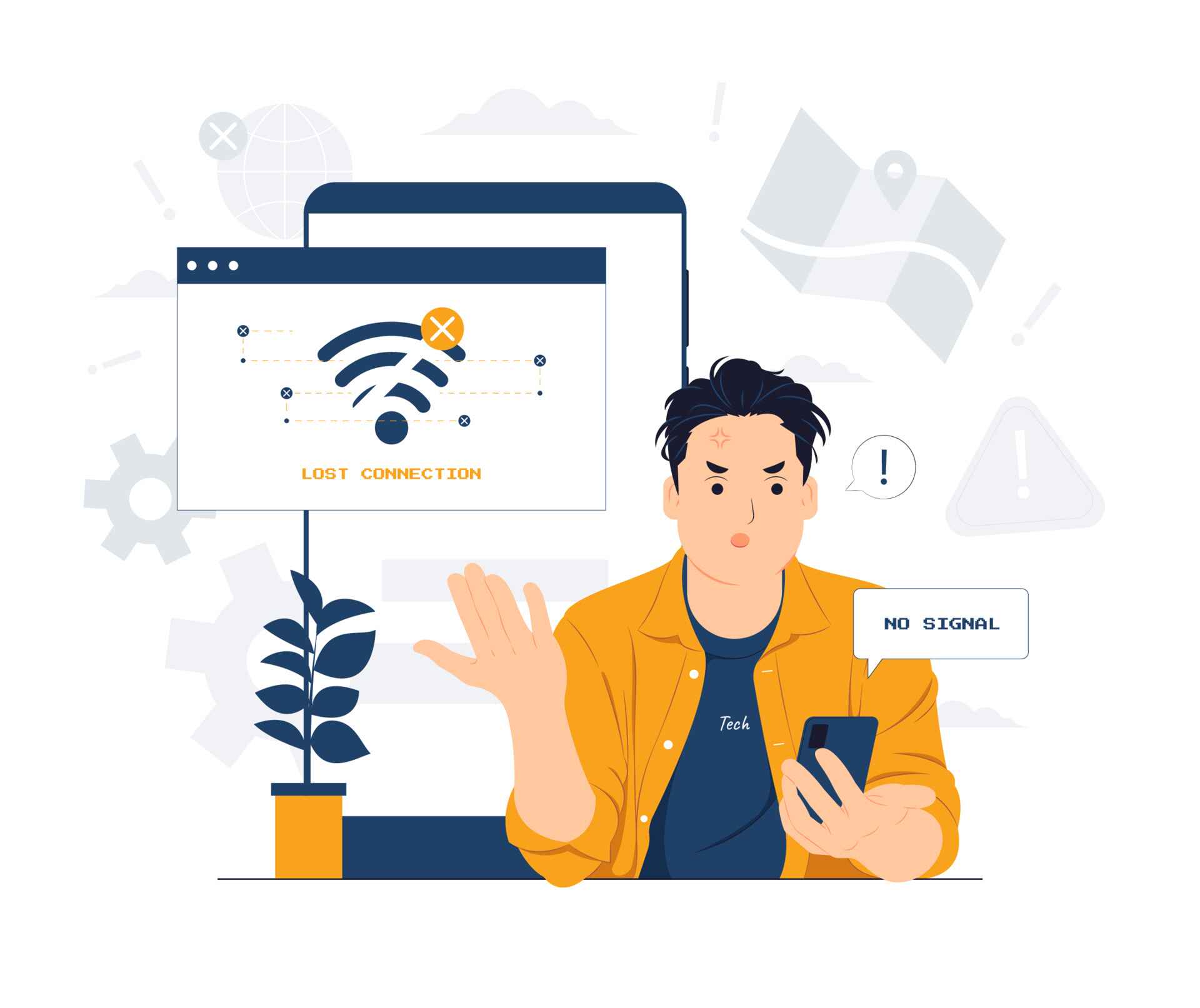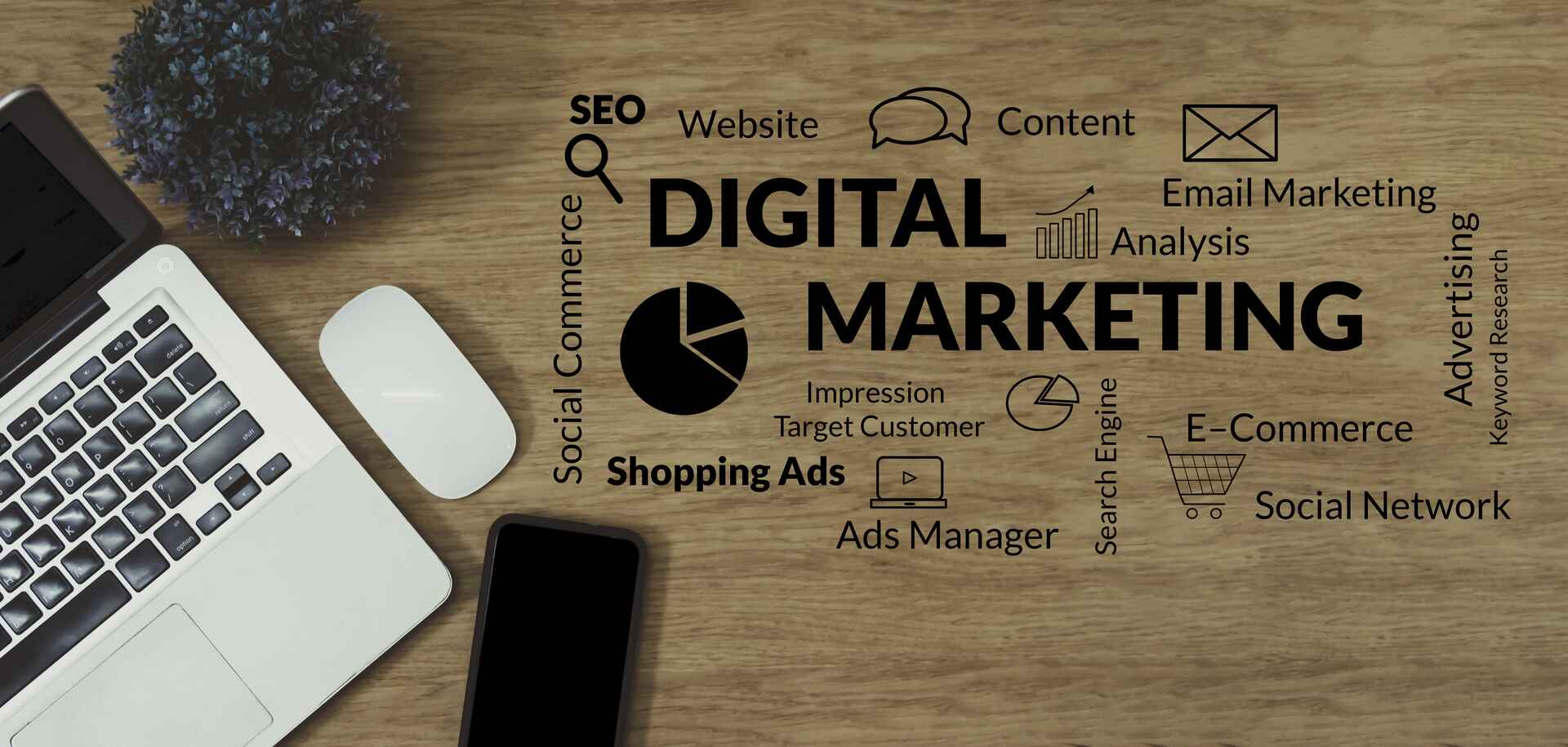When considering digital options for your business, the choice between a mobile app and a website can be tough. Each brings unique advantages, and knowing how they differ—while keeping your goals in mind—can be the key to making the right pick.
In this article, we’ll walk you through everything from user engagement and personalisation to security and offline access, helping you decide if a mobile app or website suits your business best. Let’s dive into the essentials to support your decision-making.
1. Similarities between Mobile App and Website

First, let’s understand the similarities between mobile apps and websites before discussing how to choose the right option. Both platforms aim to enhance user experience and engagement while providing essential information about your services. Let’s explore how these two digital solutions can complement each other for your business.
Accessibility Across Devices
Both mobile apps and websites are designed to be accessible across various devices. Whether your customers are on their smartphones, tablets, or computers, they can interact with your business anytime, anywhere. This flexibility ensures you can reach a broader audience, increasing your chances of sales and brand recognition.
User-Centric Design Principles
User experience (UX) is paramount for both mobile apps and websites. They should both be intuitive and user-friendly, allowing visitors to find what they need effortlessly. Key elements like navigation, loading speed, and responsiveness should be prioritised to enhance usability. This focus on UX design ensures that customers are more likely to engage with your content, fostering loyalty to your brand.
Integration of Marketing Tools
Both mobile apps and websites can leverage various marketing tools to enhance engagement. Whether through social media sharing, analytics tracking, or email sign-ups, these features can be integrated into both platforms. For instance, you can use tools to analyse user behaviour and adjust your marketing strategies accordingly. Ultimately, this integration helps you build better relationships with your audience.
Potential for Future Expansion
Finally, both mobile apps and websites have the potential for future growth and expansion. As your business evolves, you can add features, content, and functionalities to meet customer needs. For example, integrating e-commerce capabilities on both platforms can help you adapt to changing market demands. This flexibility allows you to stay competitive in a rapidly changing digital landscape.
2. How Mobile Apps Enhance User Engagement

If you’re looking to keep users coming back, mobile apps are built for engagement. Apps offer unique, tailored features that help increase customer loyalty and satisfaction, setting them apart from websites.
Personalised Notifications
Push notifications allow apps to communicate directly with users, sending reminders or updates instantly. This direct connection encourages engagement, which websites can’t match. With Zoomo Tech’s expertise in custom notifications, we help you engage users effectively without being intrusive.
Seamless Customer Support
In-app messaging or support chat features make it easier for users to reach out with questions, improving overall customer service. A quick and responsive support channel in your app boosts user satisfaction and reduces drop-off rates.
Gamification and Rewards
Many apps utilise gamification, offering points or rewards for regular use. These features can significantly boost user engagement, as customers enjoy the interactive experience. Many gamification techniques involve mobile app interactions like shaking the phone or swiping the screen, which are not possible on a website. Apps with rewards programs can turn casual users into loyal followers over time.
Data-Driven Personalisation
Apps track user behaviour, enabling you to provide relevant content and offers. User behaviour like daily step counts or time spent within a geofenced area can only be tracked through a mobile app, not a website. By studying these patterns, you can anticipate users’ needs and tailor the app experience accordingly. Data-driven personalisation is a valuable edge in today’s competitive market.
3. Apps for Faster, More Personalised Experiences

For those seeking faster, more customisable user experiences, a custom mobile app deliver like no other platform. Apps cater to user preferences efficiently, offering a level of personalisation that websites simply can’t achieve.
Offline Access and Speed
Mobile app can function even offline or with limited connectivity. Apps are often optimised for speed, allowing seamless browsing and task completion without delays even with an inconsistent internet, unlike websites that rely heavily on connection quality.
Location-Based Personalisation
Through geolocation services, apps can deliver content and offers based on a user’s location. If your business has a physical presence in Malaysia or Singapore, this feature can attract nearby customers with location-based promotions, enhancing relevance and engagement.
Shorter Loading Times
App content is preloaded on the device, making load times almost instant. A mobile app should load fully and be ready to use within a second of opening it on your phone. Fast loading speeds improve user satisfaction and are crucial in retaining attention, especially in today’s fast-paced world.
Enhanced User Control
App settings can be adjusted to meet personal preferences, letting users control notifications, themes, and more. This gives users a sense of ownership over their experience, encouraging longer engagement.
4. Mobile Websites: Pros & Cons for Business

Mobile website remain essential for businesses due to their wide accessibility. Although they may lack the depth of interaction offered by apps, mobile websites provide a valuable, low-cost digital presence.
Easy to Access and Share
Mobile websites can be accessed from any device without needing a download, making them shareable across social media and other channels. This ease of access is especially beneficial for businesses targeting a broad audience in Malaysia.
Lower Development Costs
Compared to mobile apps, websites are generally faster and cheaper to develop, making them a great choice for startups or small businesses. You’ll see a faster return on investment when starting with a website before expanding to an app.
SEO Advantages
Websites can be ranked on search engines, giving them a digital visibility advantage. This visibility brings new leads to your business without the need for constant paid advertising, a useful option for growing businesses in Malaysia and Singapore. Click here to learn more about “Why SEO Matters for Small Corporate Websites.“
User Familiarity
Since websites are universally accessible, users often feel confident and familiar with their navigation. For businesses targeting multiple age groups or less tech-savvy audiences, a mobile website can be more user-friendly.
Limited Interaction
However, websites lack the interactive features that mobile apps offer, like push notifications or in-app chat. This makes it harder to sustain user engagement, which is why apps often complement mobile websites to maximise digital presence.
5. Push Notifications vs. Email Marketing

When it comes to staying connected with your audience, both push notifications and email marketing have their place. Each method reaches users differently, and the right choice depends on your business’s engagement goals and target audience.
Direct Engagement with Push Notifications
Push notifications deliver messages straight to users’ screens, grabbing their attention instantly. With higher open rates than email, these notifications are particularly effective for time-sensitive promotions or updates. For businesses in Malaysia, push notifications can reach users quickly, especially during local events or sales.
Email Marketing’s Broader Reach
Email marketing remains effective for building relationships over time. Emails allow more content, visuals, and links, making them ideal for monthly newsletters, event announcements, or in-depth product highlights. Despite lower open rates, emails provide more space for storytelling, making them perfect for brands building trust.
Personalisation Potential
Both push notifications and emails can be personalised, but push notifications offer a more immediate connection. Apps can use user data to send highly relevant notifications, such as location-based promotions or reminders. Email personalisation, though less direct, allows you to create detailed, segmented lists for tailored campaigns.
Frequency and Timing
Push notifications need careful timing and moderation; too many can feel intrusive, while email allows for more controlled, periodic updates. Finding a balance that respects user preferences can improve engagement across both channels.
Cost and Effectiveness
Push notifications are generally more cost-effective for reaching active app users, while email marketing’s broader reach makes it effective for expanding awareness beyond current users. Choosing the right method depends on your goals, from quick reach to deeper engagement.
6. Offline Access: The Power of Apps

One of the standout features of mobile apps is offline access, enabling users to interact with the app without an internet connection. This feature is especially useful for businesses looking to enhance accessibility for on-the-go or rural users.
Access Anytime, Anywhere
Offline access allows apps to store essential content, letting users browse or make basic actions without data. For Malaysian users frequently traveling or facing connectivity issues, offline capability provides uninterrupted engagement, especially in low-signal areas.
Enhanced User Experience
Offline features like viewing saved content or tracking progress in an app can improve user experience, making the app more dependable. This improves satisfaction and loyalty, as users know they can rely on the app even with limited connectivity.
Key for Certain Industries
For industries such as logistics, education, and hospitality, offline functionality is invaluable. Delivery apps, for instance, can keep drivers updated without constant internet access, while educational apps allow students to access materials from remote areas in Malaysia and Singapore.
Cached Content and Updates
Offline apps usually store data temporarily, updating it when the user reconnects. This makes it easier to store information like account details, catalogues, or previously viewed pages, offering a seamless experience and saving users’ data.
Potential Challenges
While offline functionality is beneficial, it requires careful planning and additional development time. Some features may be unavailable offline, so it’s essential to prioritise what’s accessible without connectivity.
7. Security Considerations for Both Platforms

Security is a significant factor when choosing between a mobile app and a website. As cyber threats grow, businesses must prioritise safe data handling to maintain user trust.
User Data Protection
Mobile apps often offer more secure login features like biometrics and multifactor authentication, providing an extra layer of security. This makes apps a preferred choice for businesses needing enhanced security, such as banking or e-commerce apps.
Platform Vulnerabilities
Websites are often more vulnerable to hacking attempts due to their open nature. However, regular security audits and SSL certifications help protect websites from breaches, securing users’ data.
Compliance with Local Regulations
For Malaysian businesses, it’s crucial to stay updated on data privacy regulations, such as the Personal Data Protection Act (PDPA). Both apps and websites need to meet these regulations to ensure that user data is managed responsibly.
Data Encryption and Storage
Apps tend to use stronger encryption measures, often storing data directly on the device with added security. Websites rely on secure server storage, which can be secure but is subject to server vulnerabilities. Understanding these differences helps businesses choose the right platform for their data needs.
Regular Updates and Patches
Whether it’s an app or a website, regular updates are necessary to protect against new security threats. Businesses must prioritise security patches and timely updates to safeguard user information effectively.
8. Choosing a Development Path That Fits

Choosing between a mobile app and a website doesn’t have to be an either-or decision. Evaluating your business needs, budget, and user base will help you determine the best fit.
Aligning with Business Goals
Consider whether your business goals align better with an app, a website, or both. Apps are great for ongoing user engagement, while websites provide easy accessibility. Clarifying these goals makes the choice clearer.
Understanding Budget Constraints
Development costs for apps can be significantly higher than websites. For startups or small businesses in Malaysia, assessing budget limitations early on helps prioritise what’s possible now and what can wait for future growth.
Identifying Target Audience Preferences
Understanding where your target audience spends most of their time—app stores or browsers—can inform your decision. Younger, tech-savvy audiences may prefer apps, while broader demographics may be more comfortable with websites.
Long-Term Maintenance
Apps often require more frequent updates, while websites are easier to maintain. For small businesses, considering long-term maintenance costs is crucial to avoid unexpected expenses.
Hybrid Options
In some cases, businesses benefit from both. If your budget allows, consider developing both a mobile website and a mobile app for your business. A mobile website can serve as a foundation for your online presence, while a mobile app can offer a more immersive experience for your loyal customers.
9. Working with a Top Mobile App Developer in Malaysia

When you decide to move forward with a mobile app, choosing the right development partner is crucial. A skilled developer can turn your app vision into a valuable asset for your business.
Expertise in Local Markets
Working with a Malaysian mobile app developer means familiarity with the local business landscape and consumer trends. Zoomo Tech’s understanding of Malaysia’s startup environment allows us to create relevant, user-friendly apps suited to local tastes. Have a project in mind? Contact us today, let’s work it out together.
Collaboration and Customisation
A top developer will work closely with you to customise features that meet your business goals, from user engagement strategies to secure data management. Clear communication and collaboration ensures the app aligns with your unique needs.
Post-Launch Support
Launching an app is just the beginning; post-launch support is essential for bug fixes and updates. With Zoomo Tech, you get continuous support to keep your app running smoothly, helping you adapt to new trends and user feedback.
Cost-Efficiency and Quality
Finding a developer that balances cost-effectiveness and quality is key. We offers solutions tailored to startups and small businesses, ensuring you get great value without compromising on quality.
Conclusion
Choosing between a mobile app and a website depends on factors like user engagement, functionality, and budget. While apps offer deeper connections and offline access, websites provide wider reach and ease of use. For local businesses in Malaysia and Singapore, understanding security, engagement tools, and development paths can guide the best choice for your business.
Whether you’re preferring an app or a website, Zoomo Tech is here to help. Our team understands the local market and can craft digital solutions that match your unique goals, budget, and audience needs. With Zoomo Tech, building a mobile app or website becomes easier, more affordable, and perfectly suited to your business vision.




